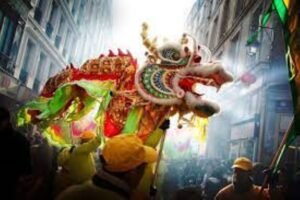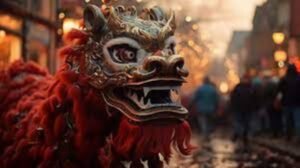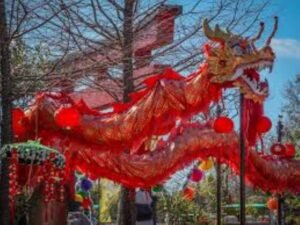On February 10, 2024, the world celebrated Chinese New Year, which marks the start of the ‘Year of the Dragon’ according to the Chinese lunar calendar. It is also the Lunar New Year and is celebrated as such by others as well. For millions of people of Chinese descent around the world, this occasion is deeply meaningful and joyous as it is a time to respect customs, welcome fresh starts, and deepen family ties. It is a part of larger tradition and lifestyle of the people with Chinese descent.

During the celebrations there are colourful parades that fill the streets and engulf them with the sound of drumming and the sight of captivating dragon dances. Moreover, families come together to share laughter and memories over mouth watering feasts that represent their statuses and their abundance at lavish reunion meals. There are also fireworks popping in the air and filling the night sky with flashes of colour and light that are also signals for the driving away of evil spirits and the arrival of good fortune.

Chinese Festivities and Symbolism in Tradition
The festivities which last about 15 days, end with the Lantern Festival which is a spectacular exhibition of lit lanterns decorating residences and public areas. There are lots of red decorations throughout, representing luck, happiness, and prosperity. They range from elaborate paper cutouts hanging on entrances to lanterns swinging in the wind. The practice of giving and receiving red envelopes, or “hongbao,” stuffed with cash is a custom that is meant to promote generosity and goodwill by symbolising blessings and wishes for the upcoming year.

Chinese New Year customs have deep roots in mythology and are full with symbolism and significance. Fireworks are thought to frighten off the legendary beast Nian and protect local communities while also bringing wealth. It is customary to follow some traditions, like eating lucky foods like dumplings, to bring wealth and good fortune into the new year.
Chinese New Year symbolises the universal ideals of harmony, thankfulness, and optimism for the future, transcending cultural barriers. It is a moment to take stock of the achievements and difficulties of the previous year and to look forward with hope and resolve. Families create enduring bonds that span generations when they get together to celebrate, reinforcing the value of kinship and community.
Chinese New Year is in actuality a celebration of culture, legacy, and resiliency rather than just a festival. It acts as a reminder of the timeless customs that unite us and the optimism that leads us into the future more confidently.











Comments 1